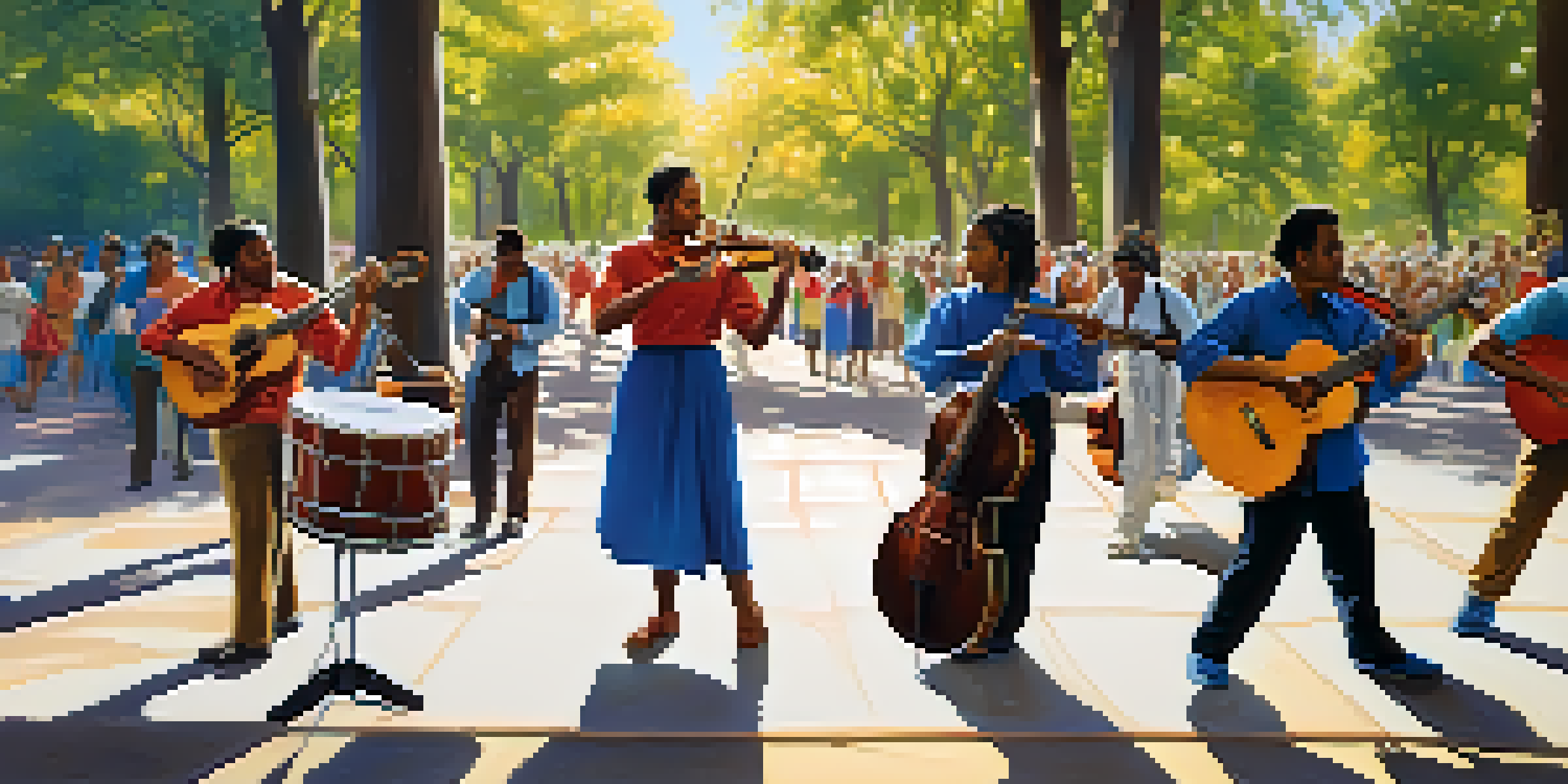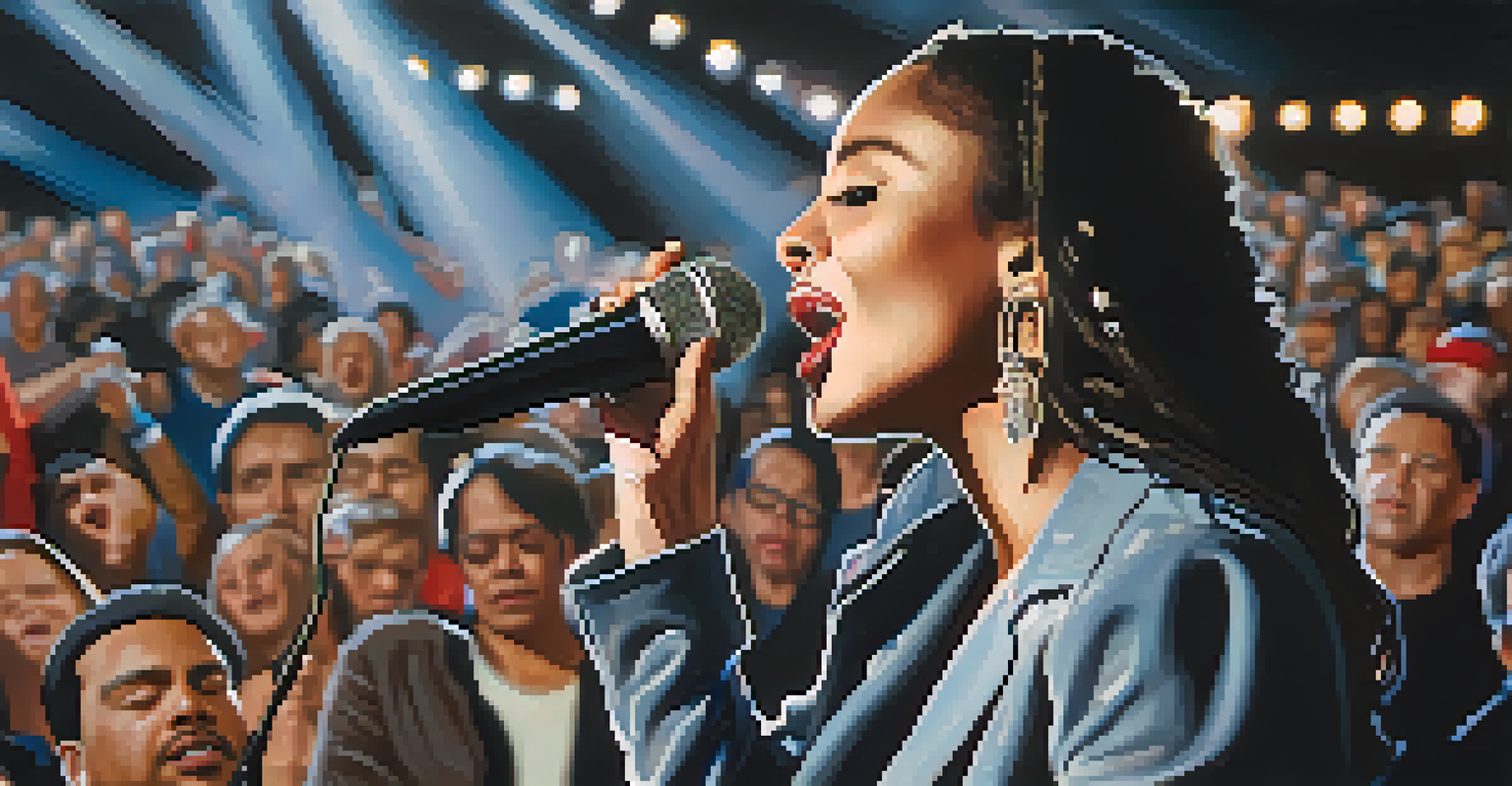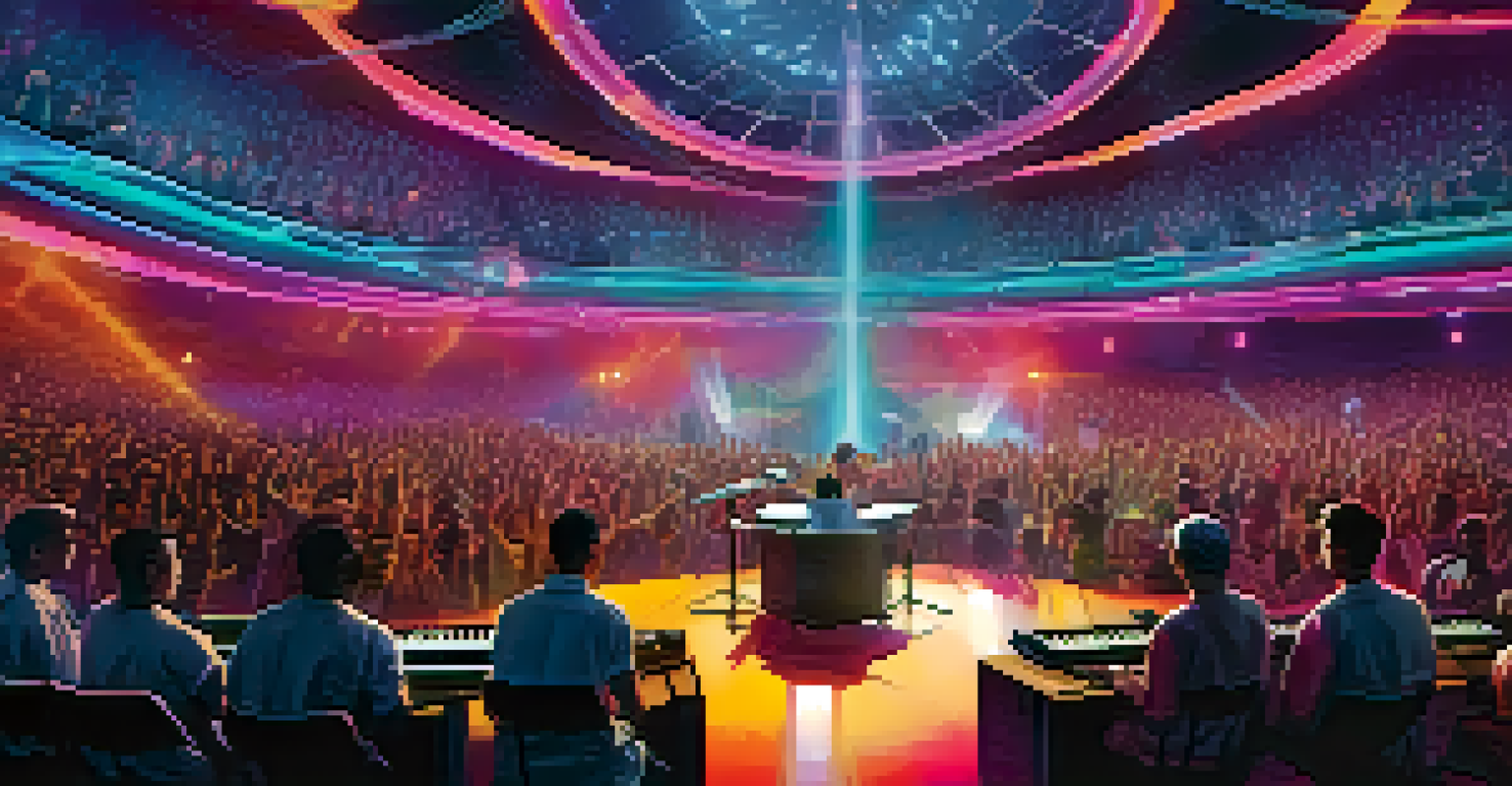Music as a Form of Resistance and Identity Assertion

Understanding Music's Role in Resistance Movements
Music has long been a powerful tool in various resistance movements, serving as a means to express dissent and unite individuals. Throughout history, songs have echoed the sentiments of oppressed communities, giving voice to their struggles and aspirations. For example, during the Civil Rights Movement in the United States, songs like 'We Shall Overcome' became anthems that mobilized people and fostered a sense of hope.
Music is the universal language of mankind.
This role of music as a unifying force is not just limited to historical movements; it continues to resonate in contemporary struggles. From protest songs in Iran to hip-hop in marginalized neighborhoods, music acts as a catalyst for social change. Artists harness their creativity to challenge injustices, making their music an integral part of the resistance narrative.
Moreover, the emotional power of music can evoke feelings of solidarity and resilience among those facing adversity. When people sing together, they share a collective experience that transcends individual struggles, reinforcing their sense of identity and purpose in the fight against oppression.
Cultural Identity and Musical Expression
Music is not just a tool for resistance; it also serves as a profound expression of cultural identity. Different genres and styles reflect the unique histories and experiences of communities, allowing them to celebrate their heritage. For instance, traditional folk music often encapsulates the stories and values of a particular culture, preserving them for future generations.

In the face of globalization, many artists are reclaiming their cultural roots through music, blending traditional sounds with contemporary influences. This fusion not only honors their past but also asserts their identity in a rapidly changing world. By doing so, musicians create a space where cultural pride and resistance intersect, challenging the dominance of mainstream narratives.
Music as a Unifying Force
Music serves as a powerful tool for uniting individuals and expressing collective resistance against oppression.
Furthermore, the act of performing culturally significant music can be a form of defiance against erasure. When artists choose to sing in their native languages or highlight their cultural practices, they reaffirm their existence and resilience, pushing back against forces that seek to marginalize them.
Case Studies: Music in Global Resistance
Examining specific examples of music in resistance movements can illuminate its profound impact. In South Africa, during the struggle against apartheid, musicians like Miriam Makeba and Hugh Masekela used their songs to galvanize support and raise awareness internationally. Their music not only highlighted the injustices faced by their people but also inspired global solidarity.
In a time of deceit telling the truth is a revolutionary act.
Similarly, in Latin America, genres like Nueva Canción emerged as a voice of the oppressed during military dictatorships. Artists such as Mercedes Sosa used their music to confront political repression and advocate for human rights, transforming personal anguish into a collective rallying cry for justice. These musical expressions became integral to the identity of their movements.
These case studies underscore how music can transcend borders and resonate with universal themes of struggle and resilience. Through powerful lyrics and stirring melodies, artists create a shared narrative that connects diverse audiences to the fight for justice and identity.
The Emotional Impact of Protest Music
Protest music has a unique ability to evoke deep emotions, making it a compelling tool for mobilization. The raw energy of a protest song can stir feelings of anger, hope, and solidarity among listeners, prompting them to take action. For instance, songs like 'Killing in the Name' by Rage Against the Machine harness aggressive sounds and provocative lyrics to challenge systemic racism and inequality.
This emotional aspect of music can serve as a catalyst for change, inspiring individuals to join movements and stand up for their beliefs. When people hear music that resonates with their experiences, it can validate their feelings and motivate them to act. The shared experience of listening to powerful protest songs during demonstrations creates a sense of belonging and urgency.
Cultural Identity Through Music
Different musical genres reflect unique cultural identities, allowing communities to celebrate their heritage and resist erasure.
Additionally, the emotional narratives woven into protest music can help individuals process their pain and trauma. By expressing collective grief and resilience through song, communities can heal and strengthen their resolve to continue fighting against injustice.
The Digital Age: Music's Evolving Role in Resistance
In today's digital landscape, music continues to play a vital role in resistance movements, though its medium has shifted. Social media platforms allow artists to share their messages instantly, reaching global audiences in real-time. Viral songs can ignite movements overnight, as seen with tracks like 'This Is America' by Childish Gambino, which critiques systemic racism and gun violence.
Moreover, the accessibility of music production tools has democratized the creation of protest music. Emerging artists can now record and distribute their work without the backing of major labels, leading to a diverse array of voices in the resistance. This has fostered an environment where grassroots movements can thrive, amplifying messages that might otherwise go unheard.
However, the digital age also presents challenges, such as the risk of co-optation by commercial interests. As protest music gains popularity, maintaining the authenticity and integrity of these messages becomes crucial. Artists must navigate this landscape carefully to ensure their music remains a true reflection of resistance and identity.
Unity Through Music: Building Solidarity
One of the most profound aspects of music is its ability to foster unity among diverse groups. When people come together to sing or play music, they create a shared experience that transcends differences and builds solidarity. Events like music festivals or community gatherings often serve as platforms for collective expression, reinforcing the idea that resistance is a shared journey.
Additionally, collaborative projects between artists from different backgrounds can highlight the interconnectedness of various struggles. For example, initiatives like 'Songs for Change' bring together musicians from various genres to create tracks that address social issues, showcasing the power of collaboration in promoting awareness and empathy.
Digital Age of Protest Music
In the digital era, music's role in resistance has evolved, enabling instant global communication while presenting challenges to authenticity.
This sense of unity is crucial in resistance movements, where strength often lies in numbers. By coming together through music, individuals can amplify their voices, creating an unstoppable force for change that resonates far beyond their immediate communities.
The Future of Music as Resistance and Identity
As we look to the future, the role of music in resistance and identity assertion remains vital. New generations of artists are finding innovative ways to address contemporary issues through their music, utilizing technology and social media to spread their messages. With the rise of genres like trap and reggaeton, these artists continue to reshape the narrative around resistance.
Moreover, music's potential to bridge cultural divides will be essential in addressing global challenges. As artists collaborate across genres and borders, they can create a unified front against issues like climate change, social injustice, and inequality. This collaborative spirit can inspire hope and action, reinforcing the idea that music is a universal language of resistance.

Ultimately, music will continue to be a powerful form of expression, providing a voice to the voiceless and a means to assert cultural identity. As long as there are stories to tell and struggles to fight, music will remain a vital tool for resistance and a celebration of our shared humanity.